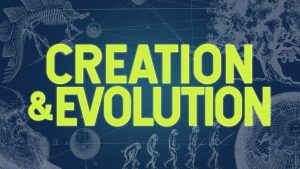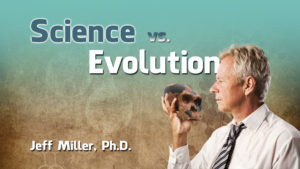-

Are Similarities Proof of Evolution? | Search Creation and Evolution
One argument made as proof of evolution is similarities between forms of life, sometimes referred to as homology. Are similarities proof of evolution? If various animals breathe the same air, drink the same water, and eat the same food, would a created origin expect to show similarities? Join Kyle Butt as he looks at various examples of nature's similarities from a Creation view.
-

Biomimicry | Search Creation and Evolution
In the realm of technology and science research, their is field called "Biomimicry." This discipline seeks to imitate processes and mechanisms in nature to create technology to benefit humanity. What does this field and its purpose tell us about the world around us? Join Kyle Butt as he looks into the implications of the amazing advances in technology in light of creation and evolution.
-

Gill Slits and Embryos | Search Creation and Evolution
What evidences have been put forward to support evolution? Do embryos show the past stages of evolutionary history? Join Kyle Butt in discussing Haeckel's hoax for gill slits and embryos.
-

Young Earth Creation | Search Creation and Evolution
Is Earth's age relatively young or billions of years old? Does science support the view that Earth's origin was thousands of years ago or billions of years ago in the Big Bang? Join Kyle Butt as he addresses the consistent view of science and scripture regarding Earth's creation.
-

Do Creation Scientists Publish Research? | Search Creation and Evolution
Do creation scientists publish research? Are intelligent design conclusions found in peer-reviewed journals? Scientists use peer-reviewed journals as a means to publish research findings and to self-regulate within their disciplines. Is this a completely unbiased process? How are conclusions for intelligent origins received by mainstream researchers?
Do Creation Scientists Publish Research? | Search Creation and Evolution
Description
Do creation scientists publish research? Are intelligent design conclusions found in peer-reviewed journals? Scientists use peer-reviewed journals as a means to publish research findings and to self-regulate within their disciplines. Is this a completely unbiased process? How are conclusions for intelligent origins received by mainstream researchers?








